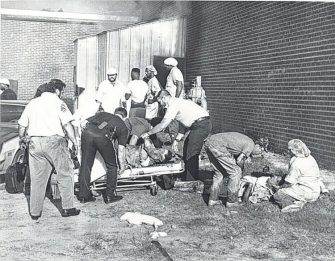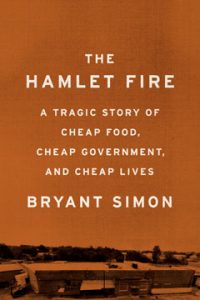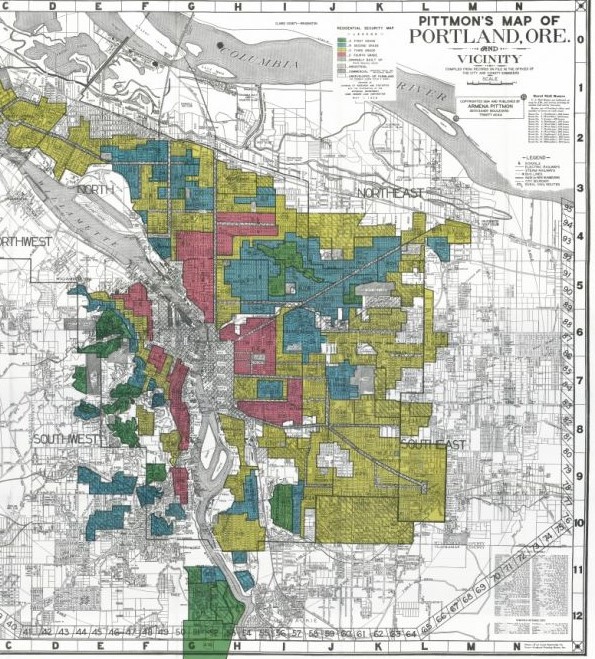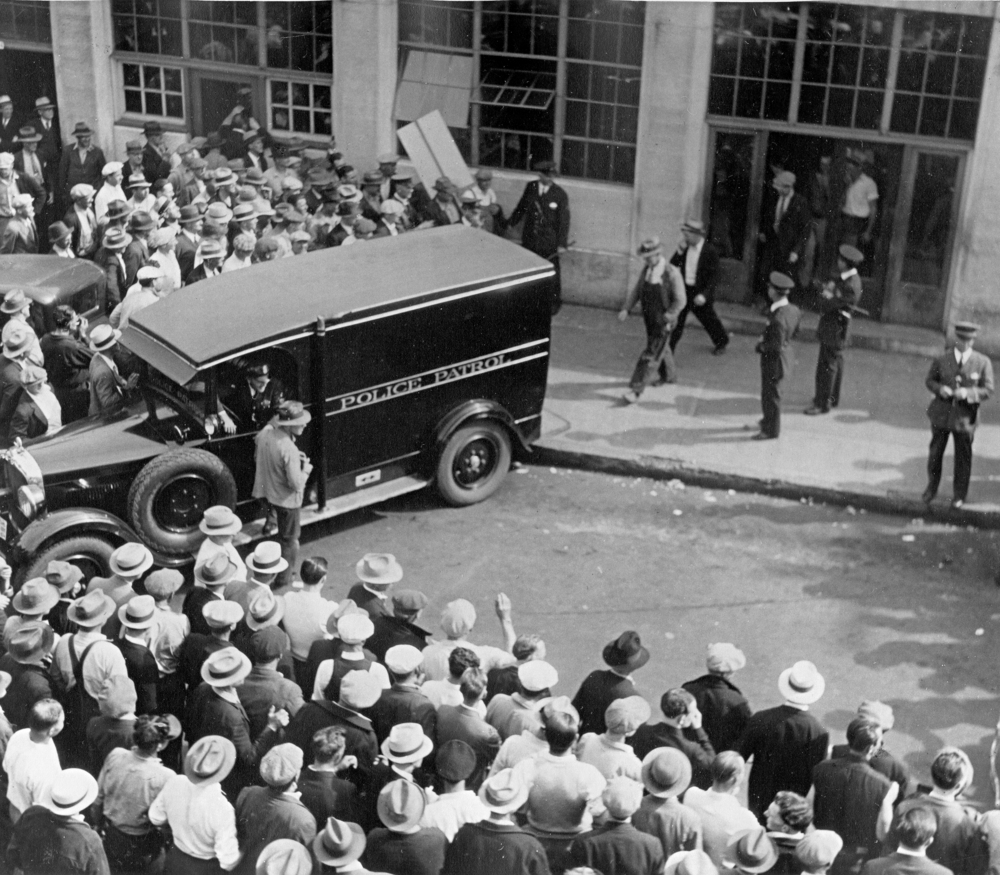
Aftermath of the fire at Imperial Foods processing plant in Hamlet, North Carolina. Credit: Tom MacCallum / Smithsonian
On September 3, 1991, 25 workers died in a fire at the Hamlet, North Carolina, Imperial Food Products chicken processing plant, due to poor working conditions and lax worker safety precautions. An article published in Scalawag Magazine describes the preventable tragedy:
. . . hydraulic fluid sprayed out of a disconnected hose in the town’s Imperial Foods chicken processing plant, and fire erupted. Some of the doors were locked from the outside, the loading dock was occupied by a truck, and, with no pre-planned exit strategy, workers in the back rooms never stood a chance.
Apathetic leadership at the local level and a corporation’s desire to capitalize, literally, on American consumers’ hunger for cheap food were what set the stage for this fire and other workplace “accidents.”
A Smithsonian article summarizes and reviews the arguments put forth by professor Bryant Simon in his 2017 book, The Hamlet Fire: A Tragic Story of Cheap Food, Cheap Government, and Cheap Lives:
 Simon examines how systems at work — both at Imperial and in the wider food production industry — like deregulation (either by law or lack of enforcement), a growing demand for cheap labor, a culture of silence and intimidation among workers and management, and changes to the meat industry itself, with its shift in the 1980s to highly processed, mass-produced chicken products made at the plant, were integral to the conflagration. And all of these elements, Simon argues, fit into a larger pattern of American society depreciating workers’ lives while elevating and prioritizing the notion of “cheap” in the consumer marketplace. . . .
Simon examines how systems at work — both at Imperial and in the wider food production industry — like deregulation (either by law or lack of enforcement), a growing demand for cheap labor, a culture of silence and intimidation among workers and management, and changes to the meat industry itself, with its shift in the 1980s to highly processed, mass-produced chicken products made at the plant, were integral to the conflagration. And all of these elements, Simon argues, fit into a larger pattern of American society depreciating workers’ lives while elevating and prioritizing the notion of “cheap” in the consumer marketplace. . . .
Just as the Triangle Shirtwaist Factory employed mostly vulnerable, financially insecure immigrant women and girls, the Hamlet fire’s victims were the underprivileged. Simon doesn’t shy away from the intrinsic role that race, class and gender played in the tragedy. Those who made decisions about Imperial’s safety protocols — the city, state and federal officials — were removed from the experiences of the workers impacted by them. Of the 25 who died in the fire, 12 were African-American and 18 were women, many of whom were single mothers.










Twitter
Google plus
LinkedIn